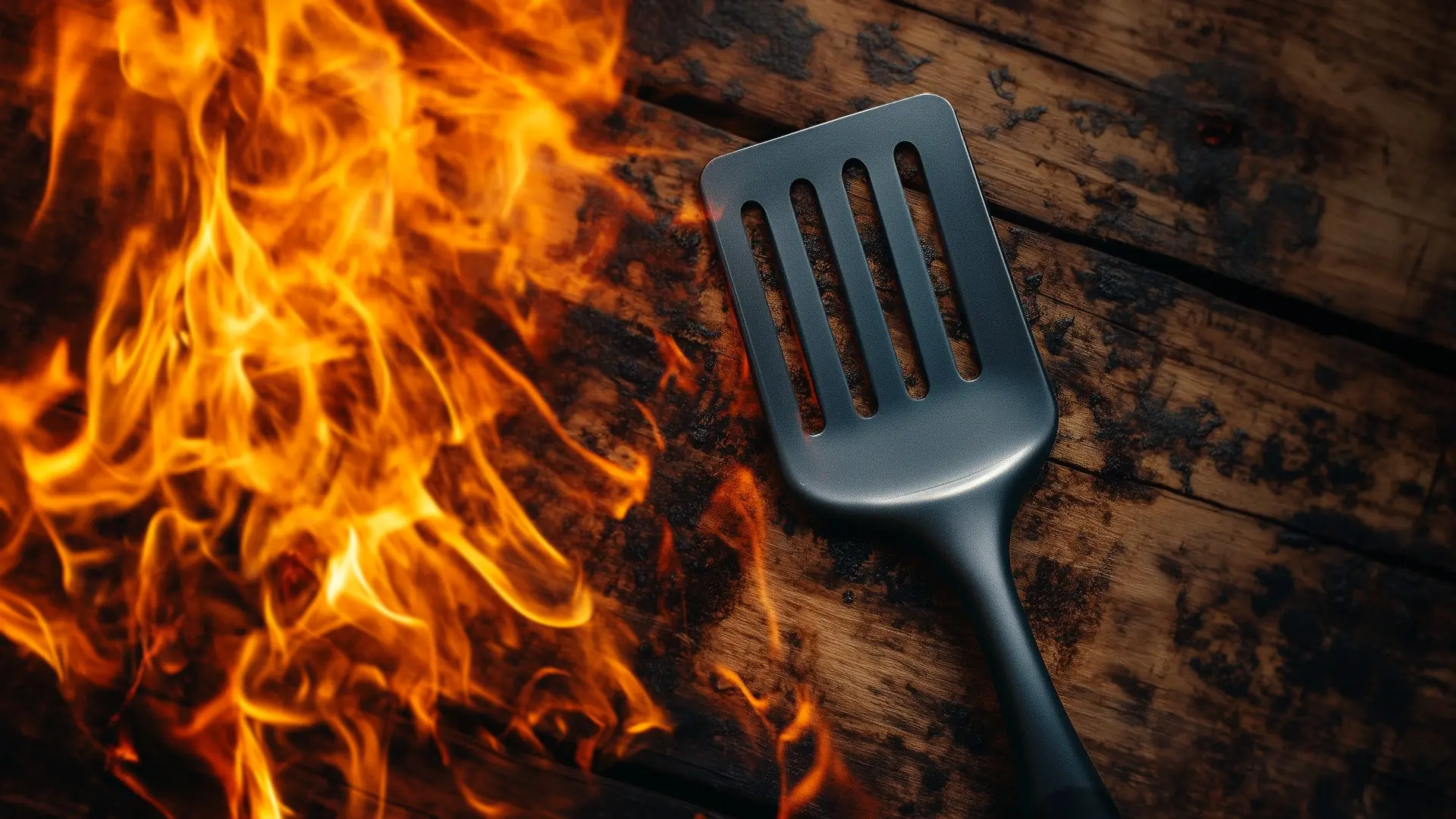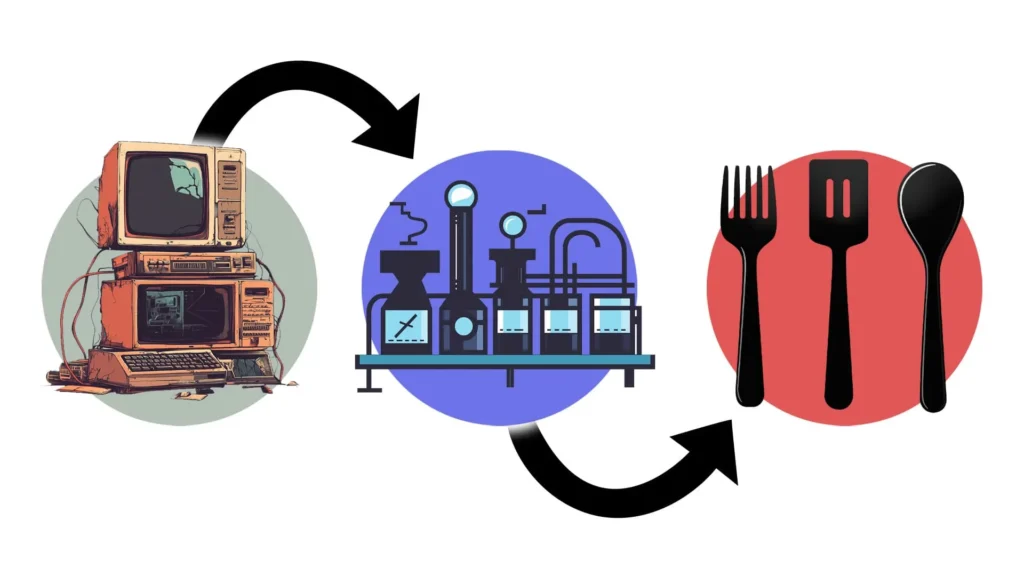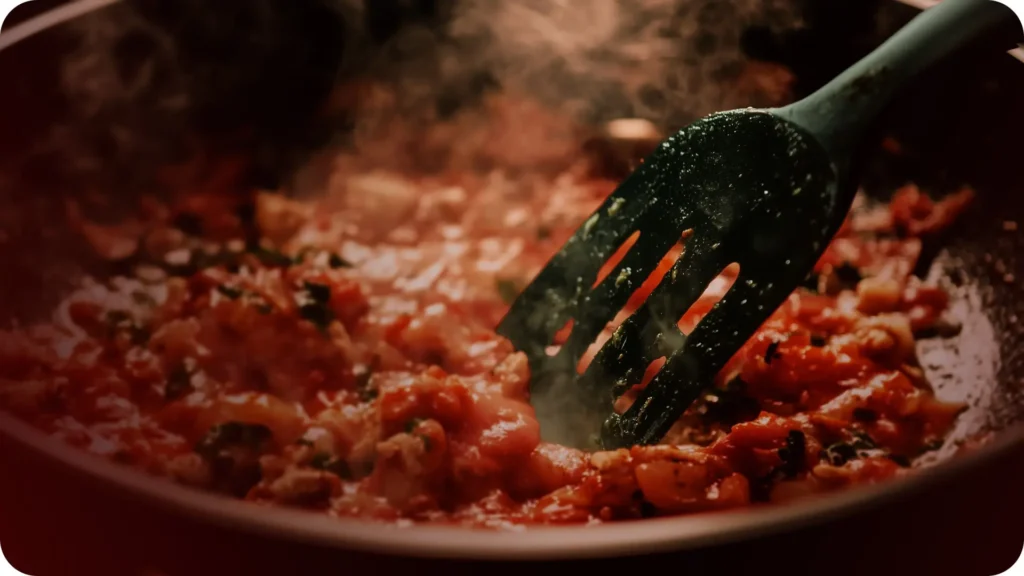
These Kitchen Utensils Are Secretly Poisoning You
Cooking is great—it’s fun, it brings people together, and you get to enjoy a delicious homemade meal. However, you may be making a common mistake, while cooking, that could be secretly harming you. And it’s not about the ingredients or your recipes. We’re talking about your kitchen utensils, the tools you use to prepare and serve your food. Some of your everyday kitchen tools contain very toxic chemicals.
Of course, you’re not eating these utensils. Nevertheless, their contact with your food, can increase your risk of getting serious health issues, including cancer. Read on to find out about the dangers of black plastic.
The true origins of black plastic
Most people don’t give much thought to the materials that make up their kitchen tools. However, when it comes to black plastics, their origin will likely surprise you, just like it surprised us at the Budwig Center.
While it might sound strange, according to studies, black plastic is often sourced from recycled electronics. So your old television, computer, or any other electronic device, could eventually end up as the spatula or slotted spoon you use to cook every day.

While recycling is generally good for the environment, it’s harmful for you when you recycle toxic items into products that come in contact with your food. For instance, these electronics are heavily treated with toxic chemical flame retardants to prevent fire hazards. And when these electronics are transformed into black plastic products, the harmful chemicals remain.
But apart from kitchen utensils, these electronics can be turned into children’s toys, takeout containers, and even grocery trays for meat and produce.
The dangers behind black plastic
One study, by an environmental advocacy group, found that black plastic kitchen utensils and other products contain extremely high levels of flame retardants. For example, a sushi tray made of black plastic was discovered to have 11,900 parts per million (ppm) of decabromodiphenyl ether (decaBDE), a chemical linked to severe health risks.
DecaBDE and similar chemicals have been banned in many regions, including a full ban by the US Environmental Protection Agency in 2021. Often, these substances could cause thyroid dysfunction, developmental issues in children, reproductive system toxicity, and even cancer. Yet, despite these bans, researchers found decaBDE in 70% of black plastic products that were tested. And surprisingly, the levels would surpass the European Union’s safety limit by as much as 1,200 times.
How black plastic can infiltrate your food
You might think that the chemicals only remain inside of the utensils. However, when black plastic utensils are heated, such as during cooking, many dangerous chemicals are being released into your food. From there, these toxins can enter your bloodstream, potentially wreaking havoc on your health, over time.

According to a study conducted in 2024, people with the highest blood levels of PBDEs (flame retardants) are 3 times more likely to die from cancer compared to those with the lowest levels. Another alarming concern regarding the chemicals found in black plastics, is their link to fertility issues and colorectal cancers.
How to protect yourself and your family
Now that you know the danger, it’s time to take action. Here are three simple ways to safeguard yourself and your family’s health:
- Get Rid Of It: Replace your black plastic spatulas, spoons, and other tools with safer alternatives. Materials like wood or stainless steel are excellent options.
- Replace Other Black Plastic Items: Beyond kitchen utensils, be cautious of black plastic used in takeout containers, toy beads, and grocery trays. Always opt for safer alternatives when possible.
- Let Others Know: Share this information with friends and family. Make sure you help others stay safe when cooking.
Take control of your health
Your health is in your hands. By making smart choices about the materials you use in your home, you can reduce your exposure to harmful chemicals. However, there are many ways toxins are harming you, other than your kitchen utensils.
If you’re dealing with cancer, you need to be informed on how to eliminate these toxins and address all other aspects of your health. We can help you with this through our Remote Cancer Program.
This program offers exclusive insights, actionable steps, and access to advice from our experts, to help you live your healthiest, toxin-free life. Click the button to learn more.
Sources
- Toxic-Free Future. (n.d.). First-ever study finds cancer-causing chemicals in black plastic food contact items sold in the U.S.
- People. (2024). Black plastics in kitchen utensils linked to cancer-causing chemicals.
- CNN. (2024, October 1). Flame retardant chemicals found in black plastic products raise health concerns.
- National Center for Biotechnology Information. (2023). Impact of polybrominated diphenyl ethers (PBDEs) on human health: A review. PMC.
- Chartres, N., et al. (2024). Microplastics in the air may be leading to lung and colon cancers. University of California, San Francisco.